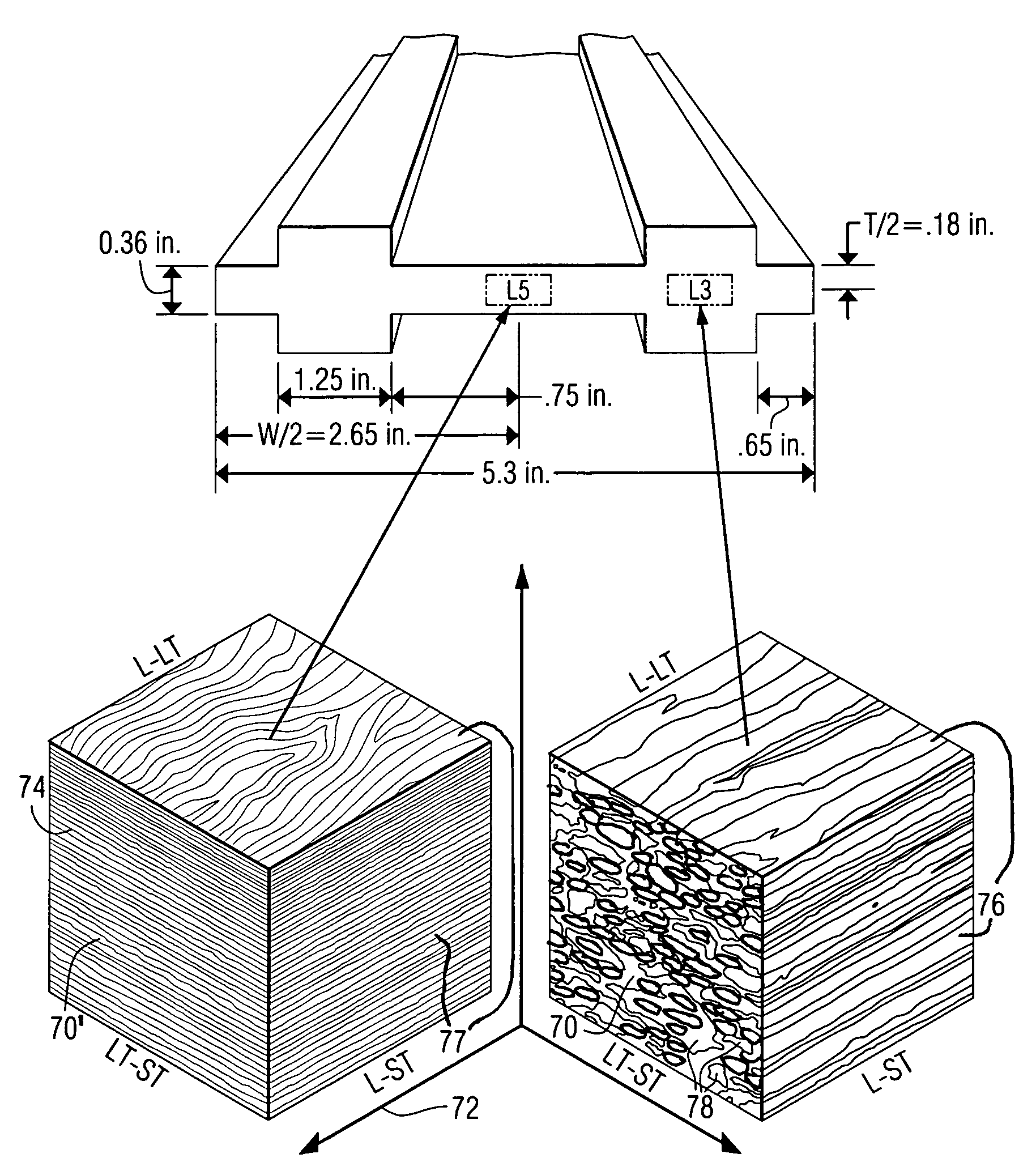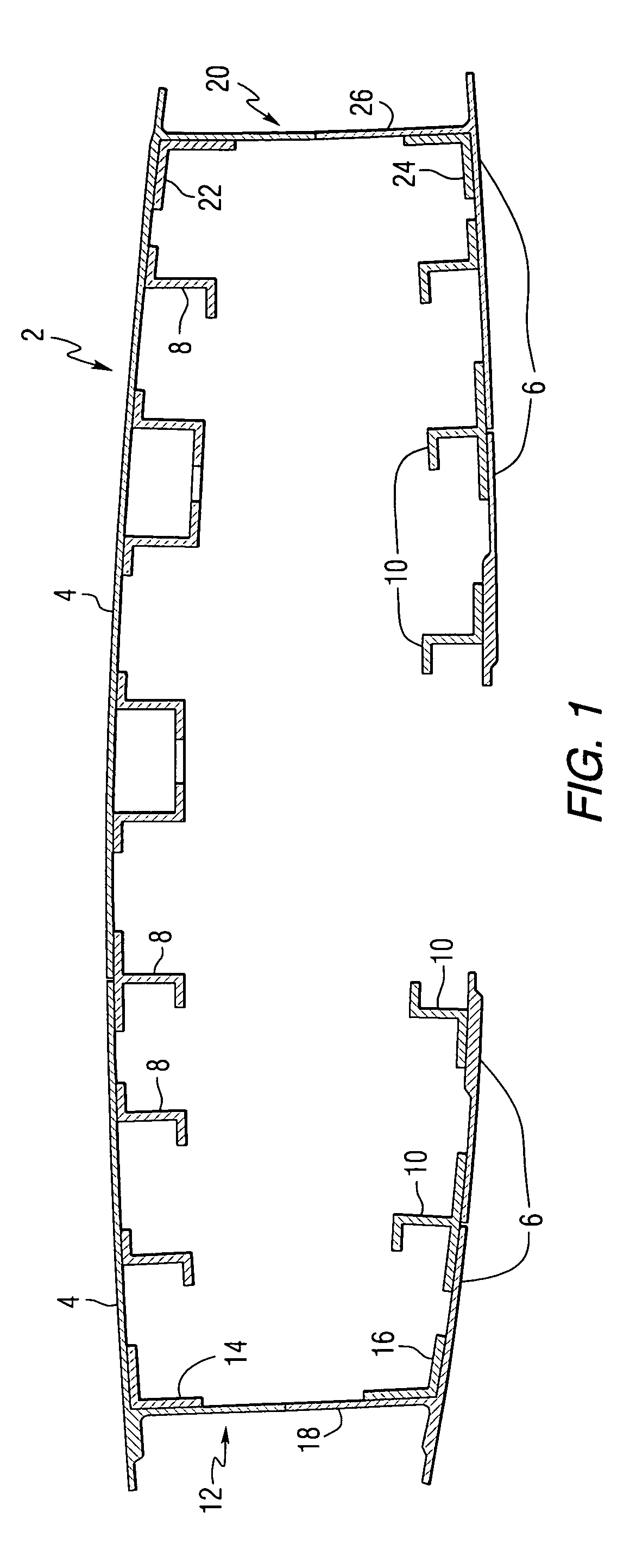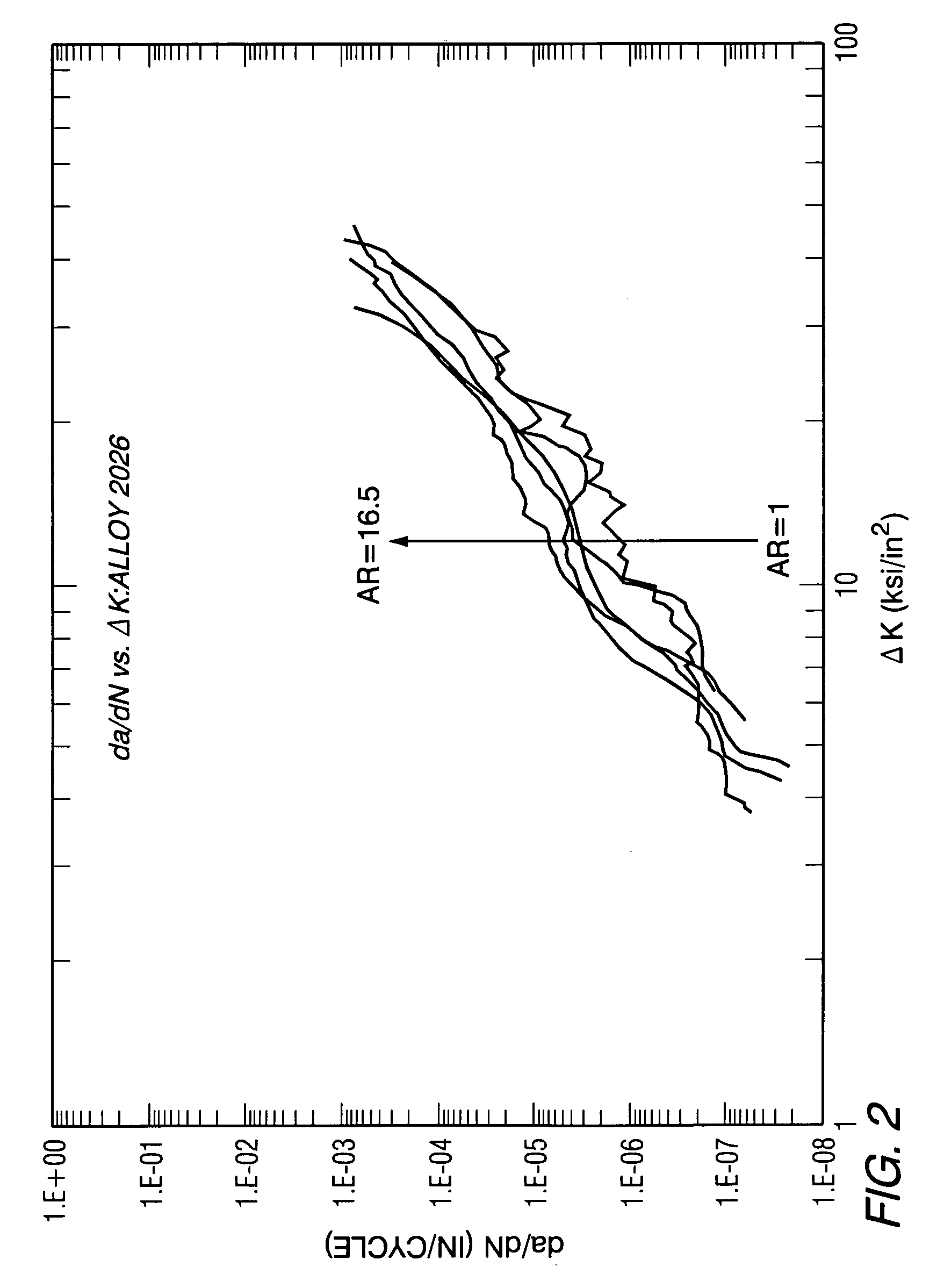Structural members having improved resistance to fatigue crack growth
a structural member and growth rate technology, applied in the direction of non-electric welding apparatus, building components, metal-working apparatus, etc., can solve the problems of increasing the number of fatigue initiation sites, increasing the likelihood of fatigue crack formation, and increasing the number of fatigue crack initiating sites in the stiffening member, so as to improve improve the damage tolerance. , the effect of improving the growth rate of fatigue cracks
- Summary
- Abstract
- Description
- Claims
- Application Information
AI Technical Summary
Benefits of technology
Problems solved by technology
Method used
Image
Examples
examples
[0081]Integrally stiffened members represented in shapes used in aerospace structures are fabricated by extruding to near net shape. As described in priority document of U.S. Provisional Patent Ser. No. 60 / 339,715, cross-referenced earlier, the variability observed in fatigue crack growth (FCG) tests of damage-tolerant extrusion alloy 2026 in the -T3511 condition was a result of the crystallographic texture that developed during processing. Two extrusion processing parameters were identified as having the most significant influence on texture evolution and subsequent FCG behavior: extrusion aspect ratio (AR) and extrusion ratio.
[0082]The observed effect of aspect ratio (AR), extrusion width divided by the thickness on FCG behavior is clearly illustrated in FIG. 2 for Alloy 2026. As the aspect ratio of various samples increases from unity, i.e., an extrusion with a square cross section, to values from 15 to 20, i.e. extrusions with rectangular cross-sections, the resistance to FCG (f...
PUM
| Property | Measurement | Unit |
|---|---|---|
| aspect ratio | aaaaa | aaaaa |
| temperature | aaaaa | aaaaa |
| temperature | aaaaa | aaaaa |
Abstract
Description
Claims
Application Information
 Login to View More
Login to View More - R&D
- Intellectual Property
- Life Sciences
- Materials
- Tech Scout
- Unparalleled Data Quality
- Higher Quality Content
- 60% Fewer Hallucinations
Browse by: Latest US Patents, China's latest patents, Technical Efficacy Thesaurus, Application Domain, Technology Topic, Popular Technical Reports.
© 2025 PatSnap. All rights reserved.Legal|Privacy policy|Modern Slavery Act Transparency Statement|Sitemap|About US| Contact US: help@patsnap.com



